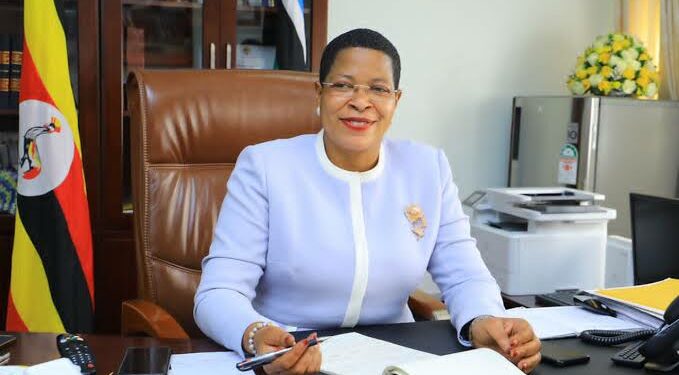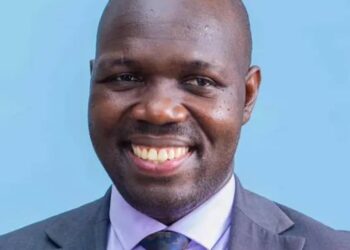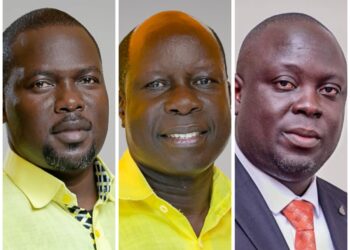Uganda’s current anti-corruption campaign targeting Speaker Anita Among requires a critical reassessment. Globally, such efforts often fall prey to “vulgarization.” Long before Among became Speaker, concerns about parliamentary corruption have steadily eroded taxpayer trust. Past efforts haven’t yielded strong results. By understanding these shortcomings, Ugandan citizens can demand more effective strategies to combat corruption and strengthen their democracy.
New Anti-Corruption Argonauts
For months, a new citizens’ anti-corruption force has captured Uganda’s attention. Led by award-winning journalist-lawyer Agather Atuhaire, the team includes multi-awarded philosophy lecturer Jimmy Spire Ssentongo, alongside revered crusaders Godwin Toko and Bukedea district’s runaway son Joshua Odea, among others.
These “argonauts” wage a two-pronged public awareness campaign: exposing suspected corruption, and inciting public pressure. Their methods are diverse: social media posts; debates on platforms like X-Spaces, television and radio; inflammatory cartoons; and donor advocacy.
Road to Hell paved with good memes?
Anti-corruption efforts portraying the Speaker as a “corrupt goddess” are bound to backfire. The public debate is getting bogged down in personalities, thereby overshadowing how to address corruption in parliament. Posts implying she controls security forces and courts distort the message. Focusing on the Speaker’s opulence and perceived invincibility breeds public acceptance, not rejection. Voters usually glorify such leaders, perpetuating the cycle.
Social psychology offers insights. People change attitudes when they see others doing so. Imagine everyone you know registering to vote – you would likely follow suit. This is not conscious; we crave social acceptance. Demonizing the Speaker as an unfettered power figure with control over money, police, and the army is dangerous. It fuels competition to join Parliament and become Speaker, reinforcing the idea of getting away with corruption. Subconsciously, it encourages more to see parliament as a place to exploit power, not fight it.
Anti-corruption campaign going wrong
Recently, the United Kingdom sanctioned the Speaker, and two former ministers. The history of foreign intervention in corruption cases is mixed. While some have yielded positive results, others have been marred by political meddling, a lack of long-term sustainability, and fostering a sense of helplessness. Considering that there is ongoing prosecution, under a robust legal system, what is the fate of public confidence in the judiciary? Ultimately, successful anti-corruption campaigns require a sense of national ownership.
Bad news gets worse
Parliament’s Communications Director, Chris Obore, launched a blistering attack, raising questions about the motives of two leading anti-corruption crusaders: Agather Atuhaire and Joshua Odea. Obore says the activists ignore the fact that no single statutory body mandated with accountability has found the Speaker culpable on any grounds.
Obore maintains that Atuhaire harbours a grudge against Among, after failing to secure a job at parliament. Obore further claims that Odea, plus his family members, benefitted from the Speaker’s generosity. Adding fuel to the fire is the alleged personal connection between Ms. Atuhaire’s female relative currently residing in South Africa, and Odea. Both, Atuhaire and Odea vehemently deny any personal vendetta, deflecting such accusations as a smear campaign aimed at discrediting legitimate anti-corruption efforts. However, if Obore’s assertions were true, it would pose further questions about the fight against corruption, which is now Uganda’s scourge.
Which way forward?
Public anti-corruption campaigns can evolve. While holding powerful figures accountable remains vital, sustained pressure is best directed at specific corrupt practices within Parliament. Proposing solutions, rather than unleashing personal attacks would be better. Corruption thrives in systems, not just individuals. Like any Speaker, Anita Among inherited rules of procedure, laws, structures and loopholes ripe for abuse. Until the laws and way of conducting business change, focusing solely on individuals can be easily weaponized for political vendettas, muddying the waters of legitimate anti-corruption efforts.
Dongo-Shema Frederick originates from Butaleja district, Eastern Uganda.
EMAIL: dongo.frederick@yahoo.com
Do you have a story in your community or an opinion to share with us: Email us at editorial@watchdoguganda.com













